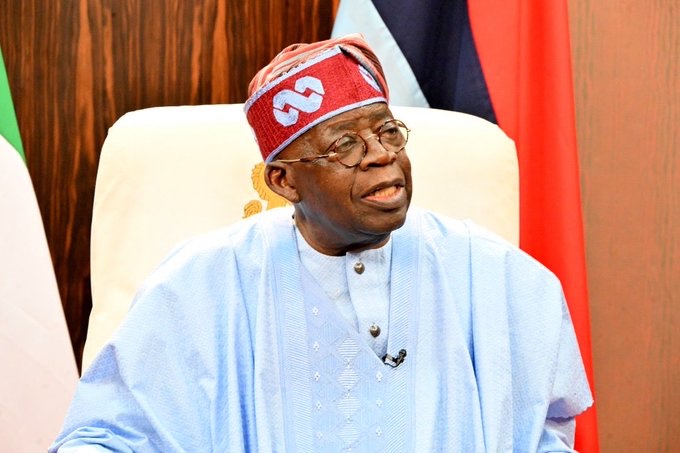
"We’re Just Starting": VeryDarkMan Unveils ‘Ratel Movement’ as a New Arm of Government

In a bold and unexpected declaration that has stirred up conversations across political and social media platforms, VeryDarkMan, an influential figure known for his out-of-the-box ideas, announced that the Ratel Movement is officially recognized as one of the four arms of government. His statement, marked by enthusiasm and confidence, has left many wondering about the future implications of this new addition to the traditional three branches of government.
“We now have four arms of government,” VeryDarkMan proclaimed in a statement that has taken the internet by storm. "The Legislative Arm, the Judicial Arm, the Executive Arm, and the Ratel Movement. We’re just starting," he continued, adding a layer of anticipation for what this new entity represents in the political landscape.
For decades, the global political system has been built around the foundational triad of governance: the Legislative Arm, which is responsible for making laws; the Judicial Arm, tasked with interpreting and upholding the laws; and the Executive Arm, responsible for implementing the laws. But with the emergence of the Ratel Movement, the balance of power may be shifting in ways that many never expected.
At first glance, the introduction of a fourth arm might seem like a disruption to the established system. Some critics have quickly raised concerns, questioning what exactly the Ratel Movement is and how it plans to coexist with the existing government structures. Others, however, are cautiously optimistic, seeing this as an opportunity for political innovation.
The name "Ratel Movement" itself is enigmatic, prompting further intrigue. A quick search reveals that the term “ratel” refers to the honey badger, a fearless and resilient animal known for its tenacity. This has led some to speculate that the Ratel Movement could represent a group that embodies qualities of independence, boldness, and perhaps even resistance, akin to the behavior of the honey badger. VeryDarkMan, however, hasn’t yet provided an in-depth explanation of the movement’s ideology or objectives, leaving much to be imagined.
Despite the mystery surrounding its goals, the timing of this announcement is significant. In a world where political systems are being questioned and new social movements are gaining momentum, the idea of introducing an unconventional arm of government is bound to make waves. VeryDarkMan’s declaration comes at a time when people are increasingly disillusioned with traditional systems and are calling for a more radical reimagining of power structures.
While the specifics remain unclear, VeryDarkMan’s enthusiasm and the cryptic nature of the statement have fueled speculation about what the Ratel Movement could ultimately represent. Is it a political movement aimed at social change, or perhaps an advocacy group focused on specific reforms? Or could it be a new way of structuring political power, where the Ratel Movement functions as a collective voice for the people, akin to a social or populist arm of government?
One of the most intriguing aspects of the announcement is the phrase “We’re just starting.” This suggests that the Ratel Movement is still in its infancy, with many more developments to come. The declaration wasn’t just about establishing a new arm of government, but also about setting the stage for a broader movement that could potentially reshape how power is distributed and exercised. It hints at an ongoing evolution of ideas that, according to VeryDarkMan, will continue to unfold.
This bold move challenges the status quo and calls for new ways of thinking about governance. It could be a response to global dissatisfaction with current systems and leadership, as well as a push for more transparency, inclusivity, and accountability. The Ratel Movement may seek to break down barriers and bring people into the political conversation in a way that feels more organic and less institutional.
The reaction to VeryDarkMan’s statement has been mixed. While some have voiced excitement and support, seeing this as an opportunity for innovation in governance, others have raised legitimate questions about how the Ratel Movement would function in practice. Will it work alongside or challenge the existing arms of government? What power will it hold, and who will lead it? The public is eager to see whether this movement will evolve into something substantial or whether it will remain a fleeting idea, lost in the midst of political rhetoric.
On social media, the hashtag #RatelMovement has been trending, with people from all walks of life sharing their thoughts on what this new arm of government could mean. Some view it as a breath of fresh air, offering hope for a more inclusive and responsive government, while others are cautious, questioning whether this is merely a publicity stunt or a true attempt at redefining governance.
As with any major political development, the success or failure of the Ratel Movement will ultimately depend on how it is implemented and how it resonates with the public. If it gains traction, it could serve as a model for other movements that seek to challenge the norms and explore alternative ways of structuring political power. If it fades away, it may simply be remembered as an interesting idea that didn’t quite take off.
What remains clear is that VeryDarkMan’s announcement has injected a new sense of urgency into the conversation about the future of governance. In a time when people are increasingly skeptical of traditional political systems, the Ratel Movement might just be the catalyst needed to spark a much-needed conversation about power, accountability, and change. Whether it becomes a lasting institution or a passing idea remains to be seen, but one thing is for sure: the world is watching to see what happens next.
As the Ratel Movement begins to make its mark, only time will tell how this new arm of government will shape the future of political discourse. If nothing else, it has captured the imagination of many, and in today’s rapidly changing political landscape, that alone might be enough to create a lasting impact.


